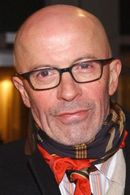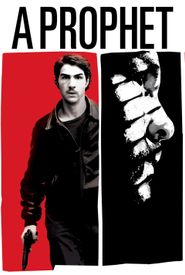Born in Paris, France, in 1952, Jacques Audiard's family has always been deeply involved in the movie business. His father, Michel, was a renowned screenwriter and director, while his uncle was a producer. Despite this familial connection, Audiard initially resisted the allure of the film industry and instead aspired to become a teacher. He pursued a degree in literature and philosophy at the Sorbonne, but his academic pursuits were cut short when his then-girlfriend suggested he work as a trainee editor during his university holidays. This opportunity led him to work as an assistant editor on several films, including Roman Polanski's "The Tenant" (1976).
Audiard's experience in the film industry was not limited to editing. He also joined a theater company, where he worked on a variety of projects, including adapting works for the stage. This exposure to the world of theater allowed him to hone his skills as a writer and develop his passion for storytelling. In the 1980s, Audiard wrote the screenplays for several successful films, including "Mortelle Randonnee" (1983),"Reveillon Chez Bob" (1984),"Saxo" (1987),"Frequence meurtre" (1988),and "Grosse fatigue" (1994). These films, directed by prominent filmmakers such as Claude Miller and Michel Blanc, were primarily thrillers that received critical acclaim.
Audiard's success as a screenwriter enabled him to raise the funds necessary to direct his first feature film, "Regarde les hommes tomber" (1994),a somber road movie starring Mathieu Kassovitz and Jean-Louis Trintignant. The film's critical and commercial success earned Audiard three César Awards for best editing, best new director, and best new actor (Kassovitz).
Kassovitz also starred in Audiard's second film, "Un héros très discret" (1996),which premiered at the Cannes Film Festival and won the award for best screenplay. This film's narrative undermined the myth of the French Resistance to the Nazis by telling the story of a young impostor who rises to prominence in French society after World War II by fabricating a heroic past for himself. "Un héros très discret" received awards at the festivals in Stockholm and Valladolid, cementing Audiard's reputation as an internationally acclaimed filmmaker.
In 2001, Audiard released his third feature film, "Sur mes lèvres" (2001),a love story between two outsiders who decide to scam a group of gangsters. The film's success earned Audiard three César Awards for best actress, sound, and screenplay.
Audiard's most recent film, "De battre mon cœur s'est arrêté" (2005),a remake of James Toback's "Fingers," premiered at the Berlin Film Festival. Throughout his career, Audiard has established himself as the new master of the French thriller, earning comparisons to great French directors such as Jean-Pierre Melville and Henri-Georges Clouzot.


































